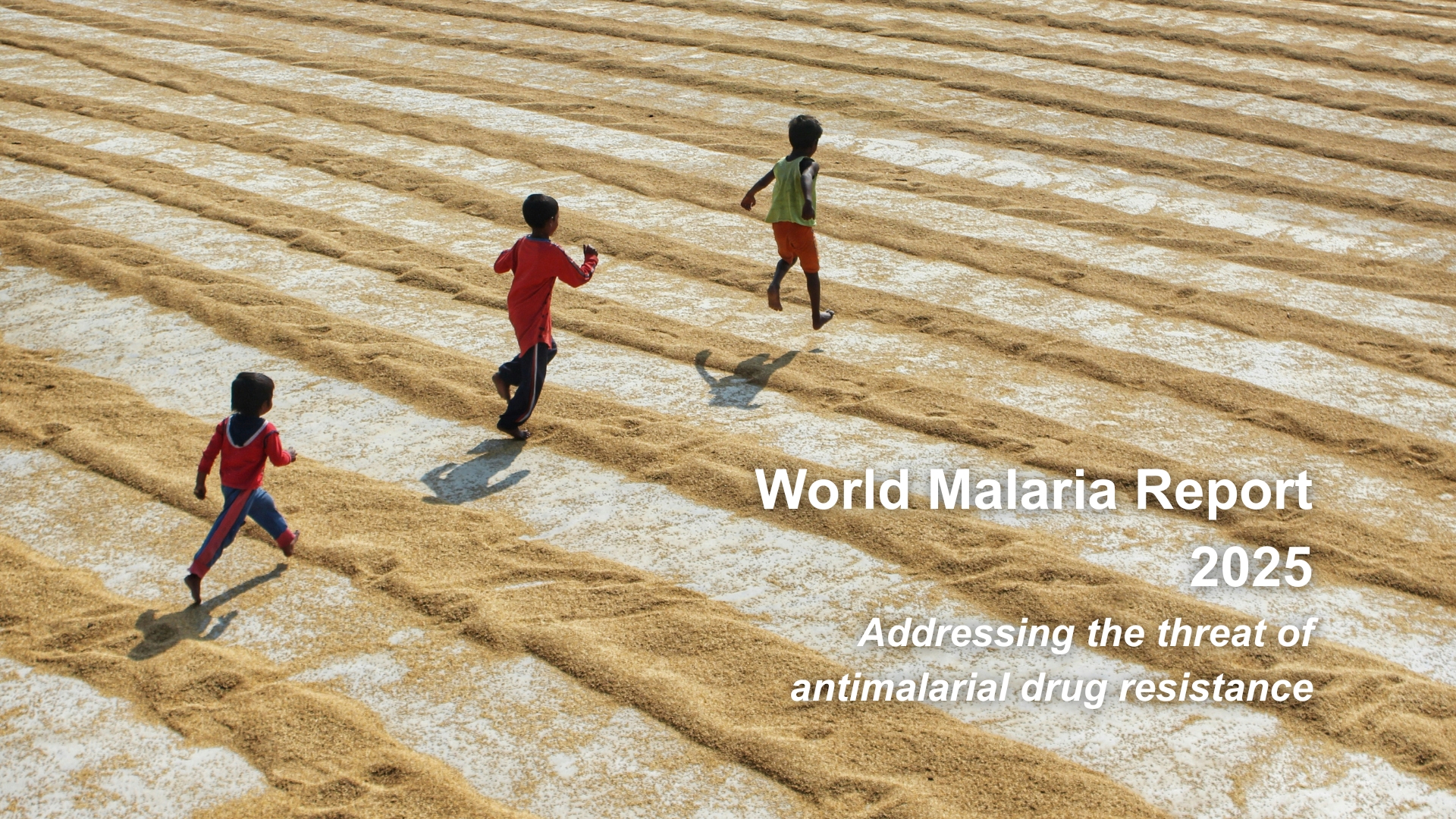
Substandard and falsified medical products (SFs), otherwise known as poor-quality medical products, put people’s health and lives at risk. From antibiotics and cancer medicines to antimalarial treatments, SFs pose a significant danger to public health in developing as well as developed countries. In the case of antimalarials, substandard versions with the wrong dose of active ingredient can lead to a rise in drug-resistant malaria, a threat to the 2030 elimination goal in the Asia–Pacific region. Participants in an upcoming Malaria Gamechangers Health Innovation Series roundtable on medicine quality on 2 December 2020 will discuss the importance of medical product quality, highlighting threats that SFs pose to malaria elimination and infectious disease control, as well as innovations to detect substandard and falsified medicines.
Poor-quality medicines fall into two categories.
- Falsified: Medicines that deliberately or fraudulently misrepresent their identity, composition or source.
- Substandard: Medicines that fail to meet quality specifications (e.g., those that contain too little of the active ingredients or that have degraded from improper storage and transport conditions).
The problem of SFs has grown over time as international markets have expanded, economies have become intrinsically connected, supply chains have become more complex, and commercial use of the internet has presented opportunities for falsified products to be sold illegally on unauthorized websites. The COVID-19 pandemic has led to further proliferation of SFs because the rising demand for certain products far outstrips supply, according to the World Health Organization (WHO). Globally, there are increasing reports of falsified COVID-19 tests, pseudo-treatments, and even vaccines and protective equipment (see also recent WHO alerts).
Through the Medicines We Can Trust campaign and other initiatives, Asia Pacific Leaders Malaria Alliance (APLMA) and U.S. Pharmacopeia (USP) have been working with a consortium of partners to raise awareness among policymakers in the Asia–Pacific region about SFs and propose concrete steps to strengthen the global medical product supply chain. Four strategies will help protect patients from SFs, including promoting collaboration across sectors, increasing transparency in the global medicines supply chain, strengthening the capabilities of medicines manufacturers and regulators, and securing commitment against SFs from governments across the region and beyond
Collaborate effectively across sectors.
Protecting people from SFs requires collaboration between all stakeholders managing the global medical product supply chain: the health sector, law enforcement, border control, justice, and the private sector, including manufacturers, importers, distributors, health professionals, media, patients/consumers and civil society. For example, Operation Pangea, a well-established international effort coordinated by INTERPOL, disrupts the online sale of counterfeit (i.e., falsified) and other illicit medical products. Through Operation Pangea, the combined efforts of police, customs, regulatory bodies and private sector companies have prevented potentially dangerous medicines from reaching unsuspecting consumers and have dismantled a number of illegal networks behind these crimes. Criminals attempt to conceal illicit medicines among other goods. For example, counterfeit contraceptive pills have been found hidden inside DVD packages, and illicit sleeping pills inside shipments labelled as clothing, bedding and food. As such, authorities need to be on high alert when checking a wide range of genuine shipments.
Increase transparency into the global medical product supply chain.
The global medical product supply chain is made up of an intricate web of ingredients suppliers, medicine manufacturers, packagers and distributors. There is a lack of consistent, standardized data that can identify, or at least signal, supply and quality concerns to regulators and healthcare providers. Without this information, policymakers are under-informed in making investments to improve the resiliency of the supply chain; regulators are unable to pinpoint ingredient and medicine supply concerns as well as compliance gaps; and healthcare providers are blindsided by shortages in critical medicines.
Greater transparency of supply and quality concerns is essential to understanding where investments and reforms are needed to build a more resilient supply chain. USP recently published a white paper on these issues. “Increasing Transparency in the Medicines Supply Chain” stressed the importance of collaboration between national governments, multi-lateral organizations, industry and healthcare providers to make information flow across the supply chain and thus reduce the challenges posed by information gaps. Greater information transparency enables more effective actions to reduce vulnerabilities and prevent or mitigate disruptions in the global supply of quality medicines. There are no easy or quick solutions to increasing transparency around the manufacture and distribution of medicines. Increasing transparency may require a mixture of voluntary and mandatory approaches resulting from regulatory changes as well as financial incentives and, importantly, political will to help catalyze the necessary changes.
Strengthen the capabilities of manufacturers and regulators.
To prevent SFs from entering the marketplace, manufacturers need the capacity to produce quality-assured medical products, and regulatory authorities in charge of managing the approvals and circulation of medical products should be adequately resourced to tackle SFs. USP partners with donors, governments and key stakeholders in low- and middle-income countries (LMICs) to support patient access to quality-assured medical products, including in the Asia–Pacific region. USP’s work supports the critical responsibility of regulators to secure the supply chain, remove SFs from the market and increase the availability of quality-assured medical products. In partnership with USAID, the Global Fund, the Gates Foundation, WHO and regional bodies, USP has strengthened health systems in more than 50 countries. Most recently, USP was selected by the Australian Department of Foreign Affairs and Trade to strengthen laboratories and quality assurance systems for medical products in Cambodia and Laos, as part of the ongoing Indo–Pacific Regulatory Strengthening Program. Additionally, USP has helped manufacturers of approximately 40 pharmaceutical medicines and key ingredients, meet international quality standards to supply their products where most needed.
The USP-Asia–Pacific Economic Cooperation (APEC) Center of Excellence for Securing Medical Product Quality through the Supply Chain disseminates best practices, standards, and guidance to improve the quality and security of global pharmaceutical supply chains. The Center of Excellence recently issued a new paper summarizing regulatory observations and areas of action to secure the medical product supply chain against vulnerabilities and disruptions, based on discussions with hundreds of regulators, industry professionals, policy makers and others across the region.
Commit focus and resources to stamp out SFs.
Governments in the Asia–Pacific region have demonstrated their commitment to improving access to quality medicines. Southeast Asian nations recently pledged to redouble efforts against SFs. It is important that the region sustains this commitment by sharing information across borders and in real time.
In November 2018, the Government of the Kingdom of Cambodia convened a conference on medicine quality which resulted in the Phnom Penh Declaration. Cambodia has since upheld its commitments to fight SFs and led the way against SFs once again as the Chair of the Asia–Europe Foundation, hosting this year’s virtual Forum on Combating Substandard and Falsified Medicines in September. The recommendations from the forum will be shared at the upcoming Asia–Europe Meeting in 2021 and help refine the Association of Southeast Asian Nations (ASEAN) joint action plan against SFs.
The Malaria Gamechangers Health Innovation Series features discussions on the role of medical products in upholding health security. Quality has been a central topic in each of the roundtables hosted on diagnostic tests and medicines. During a fifth roundtable scheduled on 2 December 2020, APLMA, USP, the RBM Partnership to End Malaria, and UNITAID will co-host a discussion on the importance of quality malaria commodities. Panelists will raise awareness about innovative approaches now available to detect SFs, such as field detection technologies, and highlight the importance of timely reporting of suspected SFs to the WHO Global Surveillance and Monitoring System.
We hope to see you there.
.svg)


.jpg)





